#Low Cholesterol Diet Plan
Explore tagged Tumblr posts
Text
Low Cholesterol Diet Plan: A Short Introduction to Heart-Healthy Eating
Maintaining a low cholesterol level is critical for cardiovascular health. A well-balanced diet may help regulate cholesterol and lower your risk of heart disease. In this blog article, we will look at a complete low cholesterol diet plan that is not only nutritious, but also tasty and simple to implement.

Understanding the Low Cholesterol Diet Plan
Cholesterol is a waxy, fat-like molecule that exists in all cells of the body. While cholesterol is necessary for the creation of hormones, vitamin D, and digestive aids, excessive amounts may raise the risk of heart disease.
Benefits of a Low Cholesterol Diet Plan
A low cholesterol diet may reduce LDL levels by limiting saturated and trans fat intake.
- Increase HDL Levels: Eating healthy fats, such as those found in nuts and fish, may help raise good cholesterol levels.
- Improve Heart Health: A diet high in fruits, vegetables, and whole grains promotes good heart health.
- Aid in Weight Management: Eating healthier foods may help you maintain a healthy weight and lower your chances of high cholesterol.
Key Elements of a Low Cholesterol Diet Plan
Focus on fiber.
Fiber is essential for maintaining healthy cholesterol levels. It helps to minimise cholesterol absorption into the circulation.
- Soluble Fiber: Oats, beans, lentils, apples, and strawberries contain soluble fiber, which may help decrease LDL cholesterol.
- Insoluble Fiber: Found in whole grains and vegetables, insoluble fiber facilitates digestion and improves gut health.
Incorporate healthy fats.
Not all fats are harmful. Replacing saturated fats with healthy fats may help your cholesterol levels.
- Monounsaturated fats: Olive oil, avocados, and almonds are good sources.
- Polyunsaturated Fats: Found in fish, walnuts, flaxseeds, and sunflower seeds, these fats are good for your heart.
Limit saturated and trans fats.
- Saturated Fats: Found in red meat, full-fat dairy products, and certain oils, saturated fats may boost LDL cholesterol levels.
- Trans Fats: Found in many processed meals, trans fats raise LDL cholesterol while lowering HDL cholesterol. Avoid foods labelled as "partially hydrogenated oils."
Choose plant-based proteins.
Plant-based proteins are often lower in cholesterol and saturated fats than animal proteins.
- Legumes: Beans, lentils, and chickpeas are both versatile and healthful.
- Nuts and Seeds: Almonds, chia seeds, and flaxseed are high in protein and healthy fats.
- Soy Products: Tofu, tempeh, and edamame are excellent alternatives to meat.
Eat plenty of fruits and vegetables.
Fruits and vegetables are low in calories but abundant in key nutrients, making them an important component of a low cholesterol diet.
- Berries: High in antioxidants, berries may help decrease cholesterol.
- Leafy Greens: Spinach, kale, and collard greens are high in nutrients and good for the heart.
- Citrus Fruits: Oranges, grapefruits, and lemons are rich in vitamin C and fiber.

Sample Low Cholesterol Diet Plan
Breakfast
- Muesli with Berries: Top a bowl of muesli with fresh berries and a sprinkling of flaxseed.
- Smoothie: Combine spinach, banana, almond milk, and walnuts for a heart-healthy start to the day.
Mid-morning snack
- Apple Slices with Almond Butter: A nourishing and fiber-rich snack.
- Carrot sticks and hummus: Rich in protein and important elements.
Lunch
- Quinoa Salad: Mix together quinoa, black beans, corn, cherry tomatoes, avocado and a squeeze of lime.
- Vegetable Soup: A hearty vegetable soup with lentils or chickpeas.
Afternoon Snack
Nuts and seeds: A modest handful of almonds or sunflower seeds.
- Fruit Salad: Combine your favourite fruits, such as oranges, apples, and berries.
Dinner
- Grilled salmon is served with steamed broccoli and a side of brown rice.
- Stir-Fried Tofu: Cook tofu with a variety of colourful veggies, including bell peppers, snap peas, and carrots, and serve over quinoa or whole grain rice.
Dessert
- Fresh fruit: Try a dish of mixed berries or a sliced peach.
- Dark Chocolate: A modest piece of dark chocolate (70% cocoa or higher) may provide a heart-healthy snack.

Tips for Success
Plan beforehand.
Meal planning may help you make better choices and avoid the temptation to eat high-cholesterol meals. Prepare your meals ahead of time to ensure that you always have healthy alternatives accessible.
Stay hydrated.
Drinking enough of water promotes general health and may assist with cholesterol management. Aim for at least 8 glasses of water each day.
Regular Exercise
Combining a low-cholesterol diet with frequent physical exercise will help your heart health. Aim for at least 30 minutes of moderate activity on most days of the week.
Conclusion

Adopting a low cholesterol diet plan with fiber-rich foods, healthy fats, and plant-based proteins can improve heart health. Small diet changes can lead to significant benefits. Start today for a heart-healthy lifestyle!
0 notes
Text
Santa Clarita Diet: A Culinary Wond,erland Unveiled
Santa Clarita, a city with a rich tapestry of culture and culinary delights, has emerged as a hidden gem for food enthusiasts. From the influence of its Spanish heritage to innovative culinary experiments, the Santa Clarita Diet is a blend of tradition and modernity that tantalizes the taste buds and nourishes the soul. Origins of Santa Clarita Diet The roots of Santa Clarita’s culinary…
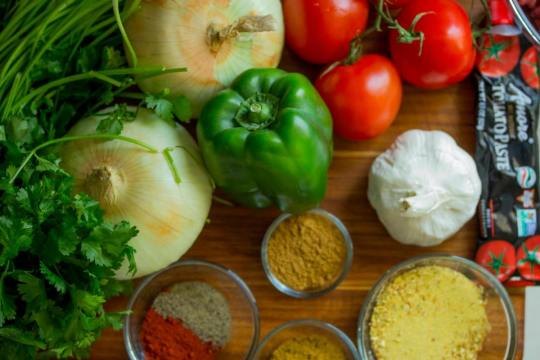
View On WordPress
#alkaline diet#anti inflammatory diet#atkins diet#brat diet#carnivore diet#dash diet#diabetes diet#diabetic diet#diverticulitis diet#fodmap diet#golo diet#keto diet#keto diet plan#low carb diet#low cholesterol diet#low fodmap diet#mediterranean diet#military diet#optavia diet#paleo diet#plant based diet#Santa Clarita Diet#what is keto diet
1 note
·
View note
Text
Primary concerns of Crohn's disease management via a low-cholesterol diet are inflammatory control and the maintenance of good intestinal health. This dietary change will have the effect of soothing your gut while at the same time maintaining the level of cholesterol in the body. It's a way of eating that's mindful and can help soothe Crohn's symptoms.
0 notes
Text
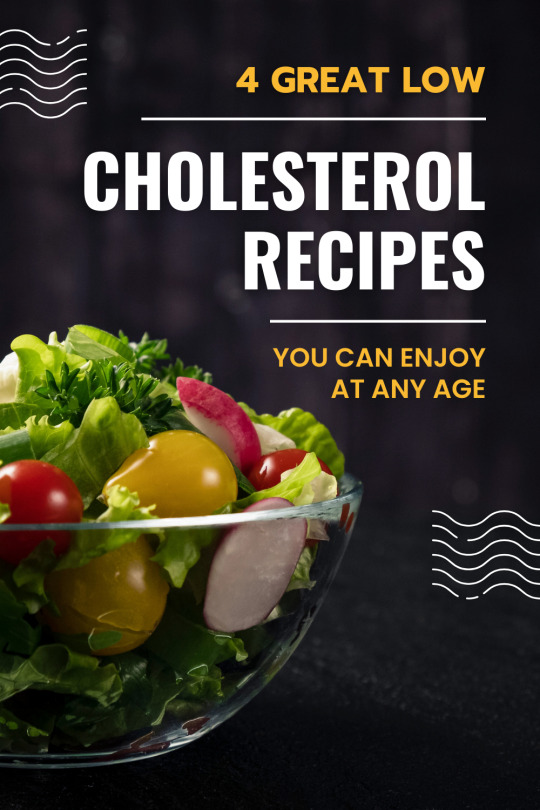
In Honor Of National Keto Month We Are Giving Away 3 Keto Cookbooks For FREE!
#keto#keto diet#ketobaking#ketocommunity#ketodesserts#ketofood#ketofriendly#ketogenic#ketojourney#ketolife#healthy diet#weight loss diet#low cal diet#3d diet#weight loss#diet plan#fat loss#dieting#ed dieta#cholesterol#lose weight fast#i wanna lose weight#i need to lose so much weight#gaining weight on purpose#diet#i need to lose this weight#tw weight loss
0 notes
Note
how much should the average Gallifreyan be eating and drinking water? if they ate like the average human, would it have adverse effects? are there any nutrients Gallifreyans need that humans don't, or vice versa?
What does a Gallifreyan diet look like?
🌮Nutritional Requirements
Gallifreyans require a balanced diet much like humans, consisting of proteins, carbohydrates, fats, vitamins, and minerals. However, their advanced biology allows them to extract nutrients more efficiently.
🍕Nutrition: An adult Gallifreyan needs roughly the same amount of calories as a human (around 2000ish), but they process food so efficiently that one good meal a day is normal, so they appear to eat less.
💧Hydration: Due to their highly efficient kidneys, they need less water. Around two litres of water every day will keep them nicely hydrated.
⚠️Limits: They can go without any food for up to two weeks and up to five days without water before showing symptoms of starvation and dehydration, though they will get increasingly, err, tetchy.
👽Gallifreyan vs. Human Diet
If a Gallifreyan ate like the average human, it wouldn't be catastrophic, but there may be noticeable effects:
🍔Over-nutrition: Given their efficiency in nutrient extraction, consuming the same amount as humans would likely lead to excessive intake, resulting in unwanted weight gain. Their bodies simply don't need as much food to get the same nutrients.
🥤Hydration Overload: Drinking the recommended 2-3 litres of water daily might lead to more frequent urination and unnecessary stress on their kidneys.
🧇Cholesterol and Fats: Gallifreyans can metabolise fats without the negative effects humans face. However, an abundance of unhealthy fats could still challenge their otherwise efficient system over time.
🍫Special Nutritional Requirements
Good news for all the intergalactic nutritionists out there-Gallifreyans and humans have very similar nutritional needs. There are no specific nutrients unique to either species' requirements. However, there are some considerations:
🥛Low Sodium: Their kidneys are excellent at filtering, but a low-sodium diet helps prevent any unnecessary strain.
🍌High Protein and Enzymes: Due to their active metabolism and physical demands, Gallifreyans benefit from higher protein intake and foods rich in enzymes to support their robust bodily functions.
🥬Nutrient Imbalances: Certain foods, especially those rich in Vitamin K (like kale and spinach) and gingerol (found in ginger), could cause issues. Vitamin K can affect their blood chemistry, while gingerol will enhance the effects of other substances, making alcohol, for instance, much more potent.
🌟Special Conditions: In cases of illness or certain medical conditions, Gallifreyans might need to consume specific substances to correct nutrient deficiencies. This might include particular proteins or compounds not commonly found in a regular human diet.
🏫 So ...
So while Gallifreyans can survive on a human diet, their advanced physiology allows them to thrive on less frequent, nutrient-dense meals. So, if you're planning a Gallifreyan dinner party, think high-protein, low-sodium, and for Rassilon's sake, hide that ginger beer.
Related:
Are there any foods that Gallifreyans can eat that humans can’t?: What foods Gallifreyans could eat that humans don’t, with some theoretical examples.
Do Gallifreyans control how quickly their body processes alcohol?: Gallifreyan alcohol processing, its limitations, and the dangers of ginger.
How much caffeine can a Gallifreyan handle?: Caffeine tolerance, with theoretical limits and symptoms of overconsumption.
Hope that helped! 😃
Any purple text is educated guesswork or theoretical. More content ... →📫Got a question? | 📚Complete list of Q+A and factoids →😆Jokes |🩻Biology |🗨️Language |🕰️Throwbacks |🤓Facts →🫀Gallifreyan Anatomy and Physiology Guide (pending) →⚕️Gallifreyan Emergency Medicine Guides →📝Source list (WIP) →📜Masterpost If you're finding your happy place in this part of the internet, feel free to buy a coffee to help keep our exhausted human conscious. She works full-time in medicine and is so very tired😴
#gil#gallifrey institute for learning#dr who#dw eu#ask answered#whoniverse#doctor who#gallifreyan biology#time lord biology#gil biology
21 notes
·
View notes
Text
The King of Mushrooms: A Nutritional Powerhouse

In the realm of functional foods, mushrooms have emerged as a nutritional powerhouse, offering a plethora of health benefits. Among these, the King Oyster mushroom, scientifically known as Pleurotus eryngii, stands tall as a culinary delight and a nutritional champion. Let's delve into the nutritional profile of this extraordinary fungus.
A Nutritional Breakdown
King Oyster mushrooms boast a nutritional profile that rivals many conventional protein sources. Here's a breakdown of their key nutrients:
Protein: These mushrooms are a fantastic source of plant-based protein, making them an excellent choice for vegetarians and vegans.
Fiber: Rich in dietary fiber, King Oysters promote digestive health and satiety.
Vitamins and Minerals: They are packed with essential vitamins and minerals, including B vitamins, potassium, phosphorus, and selenium.
Low in Calories: Despite their nutritional density, King Oysters are low in calories, making them a guilt-free addition to your diet.
Health Benefits Beyond Nutrition
The nutritional prowess of King Oyster mushrooms extends beyond their basic nutrient profile. Here are some of the remarkable health benefits associated with these fungi:
Immune Boost: The beta-glucans present in King Oysters have been shown to stimulate the immune system, enhancing the body's defense mechanisms.
Antioxidant Power: These mushrooms are rich in antioxidants, which help combat oxidative stress and protect cells from damage.
Anti-inflammatory Properties: Certain compounds in King Oysters exhibit anti-inflammatory effects, reducing inflammation and promoting overall well-being.
Blood Sugar Regulation: Studies suggest that King Oysters may help regulate blood sugar levels, making them beneficial for individuals with diabetes.
Heart Health: The fiber, potassium, and antioxidants in these mushrooms contribute to heart health by lowering cholesterol levels and reducing the risk of heart disease.
Incorporating King Oyster Mushrooms into Your Diet
King Oyster mushrooms are incredibly versatile and can be incorporated into various dishes. Here are a few ideas:
Sautéed: Sauté them with garlic, olive oil, and herbs for a quick and flavorful side dish.
Grilled: Grill them to perfection, adding a smoky flavor that complements their meaty texture.
Steamed: Steaming preserves their delicate flavor and nutritional value.
Soups and Stews: Add them to soups and stews for a hearty and nutritious meal.
Pasta Dishes: Incorporate them into pasta dishes for a unique and satisfying flavor.
Conclusion
King Oyster mushrooms are a culinary treasure and a nutritional powerhouse. Their unique combination of nutrients and potential health benefits makes them a valuable addition to a balanced diet. So, the next time you're planning your meals, consider adding these royal fungi to your plate. Your taste buds and your body will thank you!
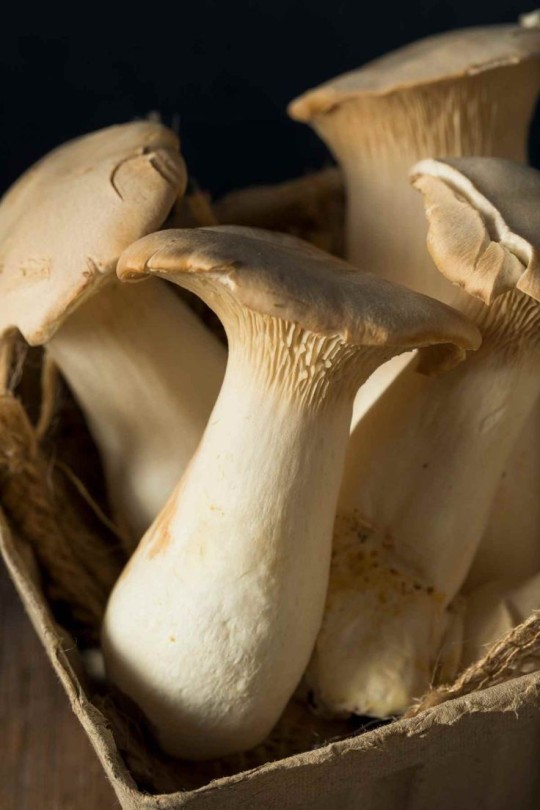
13 notes
·
View notes
Text
Clinical Nutrition & Dietetics: Science for Better Health
Clinical Nutrition and Dietetics is a specialized field that uses nutrition to manage and prevent disease, improve health outcomes, and promote overall well-being. Here’s a deep dive into the essential aspects of this field:
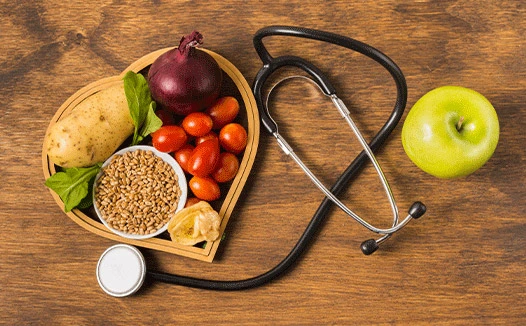
What is Clinical Nutrition and Dietetics?
Clinical Nutrition and Dietetics involves assessing, diagnosing, and treating nutrition-related health issues. Dietitians and clinical nutritionists work closely with patients to develop dietary plans tailored to their medical conditions, lifestyle, and specific health goals.
Key Areas of Clinical Nutrition and Dietetics
Medical Nutrition Therapy (MNT): MNT is the cornerstone of clinical dietetics, involving specialized dietary interventions based on scientific evidence. It’s used to treat chronic illnesses like diabetes, cardiovascular disease, cancer, and kidney disease.
Nutritional Assessment: This includes evaluating a patient’s diet, medical history, physical health, and lab results to create personalized nutrition plans. Tools include BMI, body composition analysis, dietary history, and blood tests to assess nutrient levels.
Therapeutic Diets: Dietitians often develop therapeutic diets to manage health conditions, which can include:
Low-sodium diets for hypertension and heart health.
Low-glycemic diets for managing diabetes.
High-protein diets for malnutrition and muscle recovery.
Renal Diets for kidney disease patients to reduce the intake of specific nutrients.
Pediatric and Geriatric Nutrition: Clinical dietitians specialize in creating age-appropriate nutritional plans for children and elderly patients, addressing issues like growth, development, bone health, and cognitive function.
Mental Health and Nutrition: Dietitians are increasingly focusing on the connection between nutrition and mental health, as certain nutrients (e.g., omega-3s, and B vitamins) can impact mood and cognitive function.
Emerging Areas in Clinical Nutrition
Functional Foods and Nutraceuticals: Functional foods (like probiotics) and nutraceuticals (such as dietary supplements) are increasingly used in clinical nutrition to support specific health outcomes, such as immune function or gut health.
Personalized Nutrition and Genomics: Nutrigenomics studies how genes influence individual responses to nutrients, leading to personalized nutrition plans based on a patient’s genetic makeup. This method works especially well for treating chronic illnesses.
Integrative and Holistic Nutrition: Integrative nutrition considers lifestyle factors, stress, and mental health along with diet, promoting a more holistic approach to patient care.
Plant-Based Diets: The use of plant-based diets in clinical settings is becoming popular for their benefits in reducing inflammation, improving heart health, and supporting weight management.
Role of Clinical Dietitians in Healthcare Settings
Hospitals: Clinical dietitians are essential in hospitals, where they design dietary plans for patients recovering from surgeries, dealing with chronic illnesses, or undergoing treatment that affects their nutritional status.
Outpatient Clinics: Many dietitians work in clinics, providing ongoing support for patients with chronic conditions like diabetes or high cholesterol.
Rehabilitation Centers: Nutritionists here help patients with recovery, focusing on high-calorie or high-protein diets to promote healing.
Skills for Clinical Dietitians
Analytical Skills: Strong understanding of biochemistry and physiology to interpret lab data and develop dietary plans. Counseling and Communication: The ability to communicate effectively with patients to promote adherence to dietary plans.
Evidence-Based Practice: Staying updated with the latest research to provide science-backed advice. Career Opportunities
Clinical dietitian: employed by long-term care homes, clinics, or hospitals.
Nutrition Researcher: Contributing to research on disease prevention and dietary interventions.
Consultant Dietitian: Providing freelance or consultancy services for healthcare facilities, wellness centers, or private clients.
Corporate Wellness Programs: Supporting employees’ health and well-being through nutritional guidance in corporate settings.
Conclusion
In conclusion, Clinical Nutrition and Dietetics is a transformative field that bridges the gap between nutrition science and patient care, offering personalized approaches to health and wellness. By understanding the intricate relationship between diet, disease, and overall health, clinical dietitians play a crucial role in improving health outcomes and enhancing quality of life. As new research and innovations in nutrition continue to emerge, this field remains essential in advancing preventive care, supporting disease management, and promoting holistic well-being.
3 notes
·
View notes
Text
Dr called today and told me I have gallstones so they have to refer me to the surgery centre to talk about treatment plans ;w; I'm really really hoping that I don't have to get surgery done bc the only person I know up here is my roommate and I'm not gonna ask him to take off work to babysit my dumb ass post-op I will just Suffer Alone
I also really hate the idea of having to alter my diet >:( food is one of my few little joys in life, I don't want to have to cut out all the fat and figure out how to fucking low fat-ify everything I cook. I really truly don't even eat very poorly. My doctors even told me my cholesterol was normal. Whyyyyyy
6 notes
·
View notes
Text
Calories in Beef – Nutritional Facts & Health Benefits

Beef is a staple in many diets around the world, valued for its flavor and nutritional profile. It’s packed with essential nutrients and proteins that provide energy, support muscle growth, and contribute to overall health. But how does beef fit into a balanced diet, especially within meal plans in Dubai where health-conscious eating is on the rise?
Nutritional Profile of Beef
Beef provides a powerhouse of nutrients per serving, though the specific calorie count and nutritional value can vary depending on the cut. On average, a 3.5-ounce (100g) serving of lean beef contains approximately:
Calories: 250
Protein: 26g
Fat: 15g
Iron: 15% of the Recommended Daily Intake (RDI)
Vitamin B12: 100% of the RDI
Zinc: 35% of the RDI
These nutrients make beef an excellent choice for maintaining energy levels and muscle health, which is particularly beneficial for those on a health meal plan in Dubai that includes regular exercise and active lifestyles.
Health Benefits of Beef
High-Quality Protein: Beef is rich in amino acids that are essential for building muscle and repairing tissues. For those looking to increase their protein intake, incorporating beef in meal plans in Dubai offers an efficient way to reach daily protein goals.
Rich in Iron: The heme iron in beef is more easily absorbed by the body than plant-based sources, helping prevent iron deficiency and supporting healthy blood flow. This can be an important factor for individuals in Dubai who may experience fatigue and weakness due to iron deficiency.
Supports Immune Health: Beef’s high levels of zinc and selenium boost immune function, aiding in better resistance to illness and supporting overall wellness. Health-focused meal plans in Dubai that include beef can help residents strengthen immunity while enjoying a balanced diet.
Vitamin B12 for Energy: Vitamin B12 is essential for energy production and proper brain function, making beef a great addition to any health-focused meal plan in Dubai, particularly for those with demanding jobs or busy lifestyles.
How Beef Fits into Meal Plans in Dubai
Incorporating beef into meal plans in Dubai offers flexibility for various dietary preferences. For those looking to lose weight or maintain a low-calorie diet, lean cuts like sirloin or tenderloin are ideal, providing essential nutrients without excessive fat. Meanwhile, health meal plans in Dubai that prioritize muscle gain or intense physical training can include higher-fat cuts, offering additional calories to support energy needs.
Moreover, with meal delivery services becoming increasingly popular, people in Dubai can conveniently add nutrient-rich beef meals to their meal plan in Dubai without compromising on taste or health.
Portion Control and Balanced Eating
While beef offers numerous health benefits, portion control is essential. Too much red meat can increase cholesterol levels and potentially lead to health issues. A balanced meal plan in Dubai should include a variety of protein sources like chicken, fish, legumes, and plant-based proteins alongside beef to ensure a well-rounded diet.
Conclusion
Beef is a nutrient-dense protein source that, when eaten in moderation, can provide significant health benefits. For those seeking a balanced meal plan in Dubai, incorporating beef can strategically support muscle health, energy, and overall wellness. Health meal plans in Dubai that integrate a mix of proteins, including beef, offer an ideal solution for maintaining a balanced diet tailored to the needs of Dubai’s diverse population.
2 notes
·
View notes
Text
Healthy Vegan Food to Try and Why Vezlay Foods Is the Best Choice
Introduction
Vegan Food is more than a dietary choice; it's a lifestyle that has been gaining traction worldwide. As people become more aware of the benefits of plant-based eating, the demand for nutritious and delicious Buy Vegan Food options has soared. This is where Vezlay Foods steps in, offering a wide array of vegan products that not only cater to your taste buds but also provide substantial health benefits. In this article, we'll explore the world of vegan, delve into the nutritional benefits of Buy Vegan Food, and highlight why Vezlay Foods should be your go-to choice for nutritious vegan food options.
Understanding Veganism
Definition and Principles of Veganism
Veganism is a lifestyle choice that involves abstaining from all animal products, including meat, dairy, eggs, and even honey. This practice extends beyond diet to avoid the use of animal-derived products in clothing, cosmetics, and other consumer goods. The core principle of veganism is to minimize harm to animals and reduce the environmental impact of food production.

Health Benefits of a Vegan Diet
Switching to a vegan diet can lead to numerous health benefits. Studies have shown that vegans tend to have lower cholesterol levels, lower blood pressure, and a reduced risk of heart disease. A well-planned vegan diet is rich in essential nutrients, promoting overall health and well-being.
Environmental and Ethical Considerations
Veganism is not just about personal health; it's also about making ethical and environmentally conscious choices. Animal agriculture is a major contributor to greenhouse gas emissions, deforestation, and water pollution. By adopting a vegan lifestyle, individuals can significantly reduce their carbon footprint and support sustainable food systems.
Nutritional Benefits of Buy Vegan Food
High Nutrient Density
Vegan Food are typically high in vitamins, minerals, and antioxidants. Fruits, vegetables, legumes, nuts, and seeds are packed with essential nutrients that support optimal health. These foods are also low in saturated fats and free from cholesterol, making them heart-healthy choices.
Lower Risk of Chronic Diseases
A plant-based diet has been linked to a lower risk of chronic diseases such as diabetes, hypertension, and certain cancers. The high fiber content in vegan food aids in digestion and helps maintain a healthy weight, further reducing disease risk.
Improved Digestion and Gut Health
The fiber-rich nature of vegan food promotes healthy digestion and regular bowel movements. A diet rich in fruits, vegetables, and whole grains supports a diverse and healthy gut microbiome, which is essential for overall health.
Challenges of a Vegan Diet
Common Nutritional Deficiencies
While a vegan diet offers many benefits, it can also pose challenges, especially regarding certain nutrients like vitamin B12, iron, calcium, and omega-3 fatty acids. It's important for vegans to plan their diet carefully and consider supplements if necessary to avoid deficiencies.
Social and Cultural Challenges
Adopting a vegan lifestyle can sometimes be socially challenging, especially in cultures where meat and dairy play a central role in traditional cuisine. Navigating social situations and dining out can require extra effort and creativity.
Finding Diverse and Tasty Food Options
One of the biggest challenges for new vegans is finding diverse and satisfying food options. However, with the growing popularity of veganism, the market is expanding, and brands like Vezlay Foods are making it easier to enjoy a varied and delicious vegan diet.
Overview of Vezlay Foods
Company Background and Mission
Vezlay Foods is a pioneering company in the buy vegan food industry, dedicated to providing high-quality, nutritious, and delicious plant-based foods. Founded with a mission to promote healthy living and sustainability, Vezlay Foods offers a wide range of products that cater to various dietary needs and preferences.
Range of Products Offered
Vezlay Foods boasts an extensive product line, including soy-based products, mock meats, plant-based proteins, and ready-to-eat meals. Each product is crafted to deliver maximum flavor and nutrition, making vegan food eating a delightful experience.
Commitment to Quality and Sustainability
Quality and sustainability are at the heart of Vezlay Foods' operations. The company uses non-GMO ingredients and adheres to strict quality control measures to ensure that every product meets the highest standards. Additionally, Vezlay Foods is committed to sustainable practices, from sourcing ingredients to packaging.
Top Nutritious Vegan Food Options by Vezlay
Soy-Based Products
Vezlay's soy-based products are rich in protein and essential amino acids. They are perfect for those looking to boost their protein intake while enjoying a variety of textures and flavors. Soy is also a great source of calcium and iron, making it a nutritious addition to any diet.
Mock Meats and Plant-Based Proteins
Vezlay offers an impressive selection of mock meats and plant-based proteins that mimic the taste and texture of traditional meat products. These options are perfect for those transitioning to buy vegan food or looking to reduce their meat consumption without sacrificing flavor.
Ready-to-Eat Meals and Snacks
For those with a busy lifestyle, Vezlay's ready-to-eat meals and snacks are a convenient and healthy choice. These products are designed to provide balanced nutrition on the go, ensuring you never have to compromise on your health due to time constraints.
Health Benefits of Vezlay Foods
High Protein Content
Protein is essential for muscle repair and growth, and Vezlay's products are packed with plant-based proteins. This makes them an excellent choice for athletes, fitness enthusiasts, and anyone looking to maintain a healthy, active lifestyle.
Rich in Essential Vitamins and Minerals
Vezlay Foods are fortified with essential vitamins and minerals, ensuring that you get a balanced intake of nutrients. This is particularly important for vegans, who need to be mindful of their nutrient intake to avoid deficiencies.
Low in Saturated Fats and Cholesterol
Unlike animal-based products, Vezlay's vegan foods are low in saturated fats and cholesterol. This makes them heart-healthy options that can help manage cholesterol levels and reduce the risk of heart disease.
Environmental Impact of Choosing Vezlay Foods
Reduction in Carbon Footprint
By choosing Vezlay Foods, you contribute to reducing your carbon footprint. Plant-based foods require fewer resources and produce fewer greenhouse gases compared to animal-based products, making them a more sustainable choice.
Conservation of Natural Resources
Vezlay Foods' commitment to sustainability extends to the conservation of natural resources. By using plant-based ingredients, the company helps preserve water, soil, and biodiversity, contributing to a healthier planet.
Support for Sustainable Farming Practices
Vezlay Foods supports sustainable farming practices by sourcing ingredients from ethical and environmentally responsible suppliers. This not only ensures high-quality products but also promotes a more sustainable food system.
Animal Welfare
One of the primary ethical reasons for choosing vegan products like those offered by Vezlay Foods is the welfare of animals. By opting for plant-based options, consumers can avoid contributing to the suffering and exploitation of animals typically seen in industrial farming practices.
Fair Trade and Ethical Sourcing
Vezlay Foods is committed to fair trade practices, ensuring that the farmers and workers involved in the production of their ingredients are treated fairly and paid a living wage. This ethical approach helps support communities and promotes social justice.
Community Support and Social Responsibility
Beyond fair trade, Vezlay Foods engages in various initiatives to support local communities and promote social responsibility. From charitable donations to community outreach programs, the company strives to make a positive impact on society.
Vezlay Foods in Daily Meals
Breakfast Ideas
Start your day with a nutritious and satisfying breakfast using Vezlay products. Try a tofu scramble with fresh vegetables or a smoothie bowl topped with Vezlay’s plant-based granola. These options are not only delicious but also packed with essential nutrients to fuel your morning.
Lunch Recipes
For lunch, Vezlay’s mock meats can be used to create a variety of tasty dishes. Think plant-based burgers, vegan burritos, or hearty salads with Vezlay’s grilled strips. These meals are perfect for keeping you energized throughout the day.
Dinner Inspirations
Dinner can be both nutritious and indulgent with Vezlay Foods. Consider dishes like vegan stir-fries, pasta with plant-based meatballs, or a comforting bowl of vegetable curry. These options make it easy to end your day with a satisfying meal that supports your health goals.
Customer Testimonials and Success Stories
Real-Life Experiences of Vezlay Customers
Many customers have shared their positive experiences with Vezlay Foods. From improved health markers to more energy and vitality, the benefits of switching to Vezlay’s buy vegan food are clear. Customers appreciate the variety, taste, and convenience of the products.
Health Transformations and Lifestyle Changes
Numerous success stories highlight significant health transformations, such as weight loss, improved digestion, and enhanced overall well-being. These testimonials underscore the impact of a nutritious vegan diet supplemented with high-quality Vezlay products.
Favorite Vezlay Products and Why
Customers often rave about specific Vezlay products, such as their soy chunks, vegan sausages, and ready-to-eat meals. The combination of taste, texture, and nutritional value makes these products favorites among Vezlay’s loyal customers.
Where to Buy Vezlay Foods
Online Stores and Marketplaces
Vezlay Foods products are available on various online platforms, making it convenient to shop from the comfort of your home. Popular online stores and marketplaces stock a wide range of Vezlay products, ensuring easy access to your favorite items.
Physical Retail Locations
For those who prefer in-store shopping, Vezlay Foods are also available at numerous physical retail locations. Check your local grocery stores or specialty health food shops to find Vezlay products. Many stores offer dedicated vegan sections for easy shopping.
Special Promotions and Discounts
Keep an eye out for special promotions and discounts on Vezlay Foods. Signing up for newsletters or following Vezlay on social media can help you stay informed about sales and exclusive offers, allowing you to enjoy their nutritious products at a reduced cost.
Conclusion
Adopting a buy vegan food offers numerous health, environmental, and ethical benefits. Vezlay Foods makes it easier to embrace this lifestyle with their wide range of delicious and nutritious products. By choosing Vezlay, you can enjoy high-quality buy vegan food that support your health and well-being, contribute to a more sustainable planet, and uphold ethical standards. So why not give Vezlay Foods a try and experience the positive impact of a nutritious vegan food ffor yourself?
2 notes
·
View notes
Text
Exploring the Myriad Health Benefits of a Vegan Lifestyle
In recent years, the vegan health benefits lifestyle has gained significant traction, propelled not only by ethical and environmental concerns but also by a growing recognition of its health benefits. Choosing a vegan diet means abstaining from all animal products, including meat, dairy, eggs, and even honey, and instead, focusing on plant-based foods. This shift in dietary habits can lead to a multitude of health advantages, ranging from reduced risk of chronic diseases to improved overall well-being. Let's delve deeper into the myriad health benefits that accompany a vegan lifestyle.
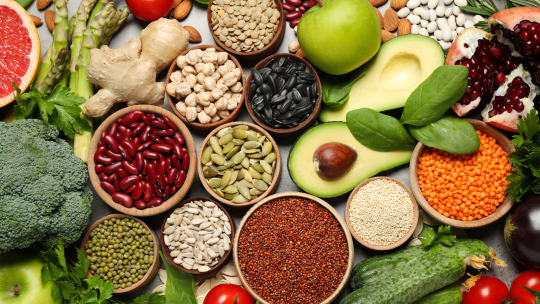
Enhanced Nutrient Intake
One of the primary misconceptions about veganism is that it leads to nutrient deficiencies. However, when appropriately planned, a vegan health benefits diet can provide all the essential nutrients the body needs for optimal functioning. Plant-based foods are rich sources of vitamins, minerals, antioxidants, and fiber. By incorporating a variety of fruits, vegetables, whole grains, legumes, nuts, and seeds into their diet, vegans can ensure they meet their nutritional requirements without the need for animal-derived products.
Lower Risk of Chronic Diseases
Numerous studies have shown that adopting a vegan lifestyle can significantly reduce the risk of developing chronic diseases such as heart disease, hypertension, type 2 diabetes, and certain types of cancer. The absence of cholesterol and the lower intake of saturated fats in a vegan diet contribute to improved cardiovascular health. Additionally, the high fiber content of plant-based foods helps regulate blood sugar levels and promotes digestive health, thereby reducing the risk of diabetes and gastrointestinal disorders.
Healthy Weight Management
Obesity has become a global epidemic, leading to various health complications. a vegan health benefits diet, characterized by its low-calorie density and high fiber content, can be an effective tool for weight management. Plant-based foods tend to be more filling than their animal-based counterparts, leading to reduced calorie intake and increased satiety. Moreover, studies have shown that vegans tend to have lower body mass indexes (BMIs) and lower rates of obesity compared to non-vegans.
Improved Digestive Health
Fiber is essential for maintaining a healthy digestive system, promoting regular bowel movements, and preventing constipation. Since plant-based foods are naturally rich in fiber, individuals following a vegan diet often experience improved digestive health. Furthermore, the consumption of fruits, vegetables, and whole grains provides a diverse array of beneficial nutrients that support gut microbiota, fostering a balanced and resilient microbial community in the intestines.
Enhanced Athletic Performance
Contrary to the misconception that vegans lack sufficient protein for muscle growth and athletic performance, many athletes have successfully adopted a vegan diet and achieved remarkable results. Plant-based sources of protein, such as legumes, tofu, tempeh, seitan, and quinoa, provide ample amino acids necessary for muscle repair and recovery. Additionally, the anti-inflammatory properties of plant-based foods can help reduce exercise-induced inflammation and promote faster recovery.
Improved Skin Health
The old adage "you are what you eat" holds true when it comes to skin health. A diet rich in fruits, vegetables, nuts, and seeds provides essential vitamins, minerals, and antioxidants that nourish the skin from within. The abundance of vitamins A, C, and E found in plant-based foods helps protect against oxidative damage, promote collagen production, and maintain youthful skin. Furthermore, the anti-inflammatory properties of a vegan diet can alleviate skin conditions such as acne, eczema, and psoriasis.
Environmental Sustainability
In addition to personal health benefits, adopting a vegan health benefits lifestyle can have a positive impact on the environment. Animal agriculture is a leading contributor to greenhouse gas emissions, deforestation, water pollution, and habitat destruction. By choosing plant-based foods over animal products, individuals can reduce their carbon footprint, conserve water resources, and help mitigate climate change. Embracing sustainable eating habits not only benefits current generations but also preserves the planet for future generations to come.
Conclusion
The health benefits of a vegan health benefits lifestyle extend far beyond personal well-being, encompassing environmental sustainability and ethical considerations. By embracing plant-based foods and eliminating animal products from their diets, individuals can experience enhanced nutrient intake, lower risk of chronic diseases, healthy weight management, improved digestive health, enhanced athletic performance, and radiant skin. Furthermore, the transition to a vegan lifestyle aligns with principles of compassion, sustainability, and global responsibility. As awareness continues to grow, more people are recognizing the profound impact of their dietary choices on their health, the planet, and all living beings.
Website: https://cruelty.farm/
#vegan health benefits#Positive Change Veganism#Cognitive Function Diet#Weight Management Vegan#Detoxifying Diet#Anti-Inflammatory Vegan#Vegan Gut Health#Vegan Athletes#Vegan Longevity#Chronic Disease Reversal#Vegan Protein Sources#Muscle Building Vegan#Vegan Iron Sources#Calcium in Vegan Diet
2 notes
·
View notes
Text
Low Cholesterol Diet Plan: Your Guide to Heart-Healthy Eating
In the bustling suburb of Ghatkopar, where life moves at a rapid pace and delicious food is abundant, maintaining heart health can sometimes be a challenge. With rising concerns over cholesterol and heart disease, adopting a low cholesterol diet plan has become essential for many residents. At Neev Nutrition, we understand the importance of balancing tasty, local cuisine with heart-healthy choices. Here’s a comprehensive guide to a low cholesterol diet plan that can help you stay healthy without compromising on flavor.

Understanding low cholesterol diet plan:
Before diving into the specifics of a low cholesterol diet plan, it’s crucial to understand what cholesterol is and why managing its levels is important. Cholesterol is a fatty substance found in your blood that is essential for building cells and producing certain hormones. However, excessive levels of low-density lipoprotein (LDL) cholesterol can cause plaque development in the arteries, raising the risk of heart disease and stroke.
A low cholesterol diet focuses on lowering LDL cholesterol while raising high-density lipoprotein (HDL), which aids in the removal of LDL cholesterol from the circulation.
The Basics of a Low Cholesterol Diet Plan:
1. Choose heart-healthy fats:
Not all fats are created equal. A low cholesterol diet plan emphasises the consumption of good fats while limiting saturated and trans fats.
Healthy Fats: Include monounsaturated and polyunsaturated fats such as olive oil, avocados, and almonds. These fats help lower LDL cholesterol.
Avoid Saturated Fats: Reduce your consumption of red meat, butter, and full-fat dairy products. Instead, choose lean proteins such as chicken, fish, and low-fat dairy.
Trans fats should be avoided since they are especially dangerous in fried meals and baked products. Check labels and steer clear of items that contain partially hydrogenated oils.
2. Increase fiber intake:
A low cholesterol diet plan should be rich in soluble fiber, which helps reduce the absorption of cholesterol into the bloodstream.
Fruits and vegetables: Aim for five servings every day. Apples, oranges, carrots, and broccoli are all great choices.
Whole Grains: Replace refined grains with whole grains like oats, brown rice, and whole wheat. Oats are particularly beneficial due to their high soluble fiber content.
Legumes: Beans, lentils, and chickpeas are not only high in fiber but also a great source of protein.
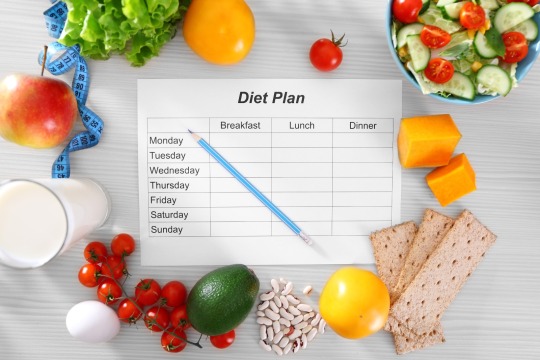
3. Use plant sterols and stanols:
Which can limit cholesterol absorption. Foods enriched with sterols and stanols are a useful supplement to a low cholesterol diet.
Fortified Foods: Look for margarine, orange juice, and yogurt drinks that are fortified with plant sterols and stanols.
4. Opt for lean proteins:
Protein is essential, but the source matters in a low cholesterol diet plan.
Fish: Rich in omega-3 fatty acids, fish like salmon, mackerel, and sardines are heart-healthy options.
Poultry: Skinless chicken and turkey are leaner choices compared to red meat.
Legumes and Tofu: These plant-based proteins are low in fat and cholesterol.
5. Limit Sodium and Sugar Intake:
Reducing salt and sugar is another key component of a low cholesterol diet plan.
Sodium: High sodium intake can raise blood pressure, exacerbating heart issues. Use herbs and spices to flavor food instead of salt.
Sugar: Excess sugar can lead to weight gain and higher cholesterol levels. Avoid sugary drinks, candies, and baked goods.

Sample Low Cholesterol Diet Plan:
Breakfast:
Oatmeal: A bowl of oatmeal topped with fresh fruits and a handful of nuts.
Green Smoothie: Blend spinach, kale, apple, and flaxseeds with almond milk.
Mid-Morning Snack:
Fruit Salad: A mix of apples, oranges, and berries.
Nuts: a few almonds or walnuts.
Lunch:
Quinoa Salad: Quinoa mixed with chickpeas, cucumbers, tomatoes, and a lemon-olive oil dressing.
Grilled Chicken: Skinless grilled chicken breast served with steamed vegetables.
Afternoon Snack:
Carrot Sticks: Fresh carrot sticks with hummus.
Low-Fat Yogurt: A cup of low-fat yogurt with a teaspoon of honey.
Dinner:
Baked Salmon: Salmon baked with a drizzle of olive oil and herbs, served with brown rice and sautéed spinach.
Vegetable Stir-Fry: A mix of colorful vegetables stir-fried with tofu in a light soy-ginger sauce.
Evening Snack:
Air-Popped Popcorn: A healthy, low-calorie snack.
Herbal Tea:
A calming cup of herbal tea like chamomile or peppermint.
Tips for Eating Out in Ghatkopar:
You have plenty of mouthwatering food options nearby if you live in Ghatkopar. Here are some tips to stick to your low cholesterol diet plan while enjoying local cuisine:
South Indian Cuisine:
Opt for steamed idlis instead of fried vadas. Choose sambhar, which is rich in vegetables, and avoid excessive coconut chutney.
Street Food:
Go for grilled or roasted options. Avoid fried items like samosas and pakoras.
Dining Out:
When eating at restaurants, ask for grilled or baked options. Request dressings and sauces on the side to control portions.
Conclusion:
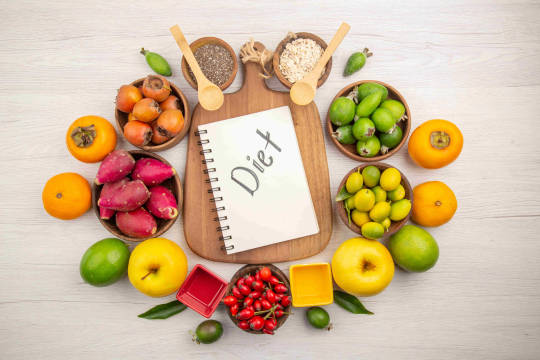
Adopting a low cholesterol diet plan is a powerful step towards better heart health, and with the right guidance from Neev Nutrition, it can be both enjoyable and sustainable. By making informed food choices and incorporating a variety of heart-healthy ingredients into your meals, you can effectively manage your cholesterol levels and embrace a healthier lifestyle. Remember, the key is balance and consistency, so start small and gradually build habits that will keep your heart strong for years to come.
0 notes
Text
A low cholesterol diet during menopause controls the symptom and maintains heart health. The dietary shift allows for a great way to support your body's changing needs through nutrient-rich, heart-healthy foods. It's proactive wellness that can make the world of difference.
0 notes
Text
The best diet for people with High Blood Pressure
Here, we've compiled a list of good-health, natural foods that are low in salt that you can easily include in your diet. Fruits, drinks, and healthy breakfast foods are all part of this food plan that might help you manage high blood pressure (BP).

1. Bananas: Due to their high potassium level, bananas can help control
hypertension. The effects of sodium and stress decrease when we consume potassium in our diet.
2. Beet juice: A high inorganic nitrate content found in beets aids in lowering blood pressure, or hypertension.
3. Berries: Strawberries and blueberries contain compounds that are antioxidant in nature, known as anthocyanins, which lead to an 8 percent reduction in their blood pressure level.
4. Dark Chocolate: Rich in cocoa, dark chocolate helps people lower their blood pressure, which in turn helps them manage hypertension.
5. Watermelon: Watermelon contains citrulline, an amino acid that lowers blood pressure.
6. Oats: Oats include a kind of fiber called beta-glucose, which lowers blood pressure and cholesterol levels.
7. Garlic: Allicin, which is found in garlic, helps the body produce more nitric oxide, which in turn reduces blood vessels.
8. Kiwi: Those with moderately high blood pressure problems may find that consuming kiwis daily helps lower their blood pressure.
9. Pomegranates: Those with high blood pressure can lower their blood pressure in the short term by consuming one cup of pomegranate juice every day for 28 days.
10. Cinnamon: Including cinnamon in your diet can lower blood pressure by
2.6 mm Hg in the diastolic and 5.39 mm Hg in the systolic ranges.
https://shorturl.at/qvyL6
#Ayurvedic Treatment for high blood pressure#the best diet for high blood pressure in Ayurveda#Circulatory
3 notes
·
View notes
Text
Breaking Down Popular Diets: Which One is Right for You?
In a world immersed with different dietary philosophies, the mission for the ideal eating routine can be both baffling and overpowering. The meaning of picking the right eating routine rises above simple culinary inclinations; it significantly impacts our general well-being and prosperity. As people leave on their health processes, they experience a variety of well-known abstains from food, each bragging about interesting commitments and extraordinary results.

This article tries to disentangle the intricacies encompassing these weight control plans, offering a thorough investigation of their standards, logical underpinnings, and certifiable ramifications. From low-carb and low-fat standards to the revered Mediterranean eating regimen, the familial reverberations of the Paleo diet, the plant-controlled ethos of veganism, and the metabolic secrets of discontinuous fasting and ketogenic living, we dive into the center fundamentals of each.
As we explore the scene of dietary decisions, it becomes obvious that the ideal eating regimen is certainly not a one-size-fits-all worldview. Factors like individual well-being objectives, way of life contemplations, and individual inclinations assume urgent parts in deciding the most appropriate methodology. Through master experiences, research discoveries, and genuine examples of overcoming adversity, this article plans to engage perusers to come to informed conclusions about their dietary processes, cultivating an all-encompassing comprehension of nourishment that rises above prevailing fashions and embraces manageable, customized well-being.
In a world immersed with different dietary philosophies, the mission for the ideal eating routine can be both confounding and overpowering. The meaning of picking the right eating regimen rises above simple culinary inclinations; it significantly impacts our general well-being and prosperity. As people set out on their well-being processes, they experience a variety of famous eating regimens, each bragging about special commitments and groundbreaking results.
This article looks to disentangle the intricacies encompassing these eating regimens, offering an extensive investigation of their standards, logical underpinnings, and true ramifications. From low-carb and low-fat ideal models to the respected Mediterranean eating regimen, the hereditary reverberations of the Paleo diet, the plant-fueled ethos of veganism, and the metabolic secrets of irregular fasting and ketogenic living, we dive into the center precepts of each.
As we explore the scene of dietary decisions, it becomes obvious that the ideal eating routine is not a one-size-fits-all worldview. Factors like individual well-being objectives, way of life contemplations, and individual inclinations assume crucial parts in deciding the most reasonable methodology. Through master bits of knowledge, research discoveries, and genuine examples of overcoming adversity, this article intends to enable perusers to come to informed conclusions about their dietary processes, encouraging a comprehensive comprehension of sustenance that rises above prevailing fashions and embraces supportable, customized well-being.
Separating the Science:
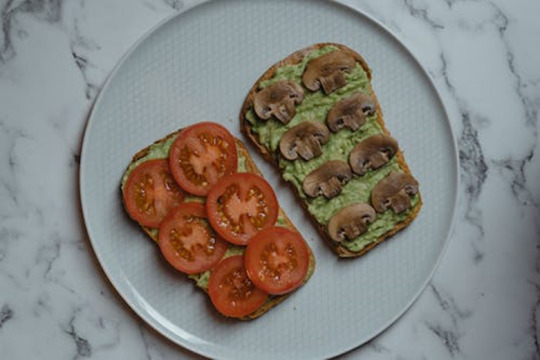
Behind each famous eating regimen lies a complicated interaction of logical standards overseeing its viability and effect on the human body. Low-carb consumes fewer calories, for example, the ketogenic and Atkins eat less, influencing the physiological course of ketosis, where the body shifts from involving glucose to consuming fat for energy, frequently bringing about weight reduction.
Low-fat eating regimens, alternately, center around diminishing dietary fat admission to oversee cholesterol levels and advance heart well-being. The Mediterranean eating regimen draws from a broad examination featuring the advantages of a high admission of organic products, vegetables, and solid fats, adding to worked cardiovascular results.
The Paleo diet is established in transformative science, affirming that our bodies are best adjusted to the food sources our progenitors devoured. This approach stresses supplementing thick, entire food varieties while keeping away from handled things. Veggie lovers and vegans eat less, grounded in moral and ecological worries, and are upheld by research exhibiting potential medical advantages, for example, lower paces of coronary illness and certain malignant growths.
Irregular fasting presents an extraordinary metabolic point of view, empowering times of fasting to advance autophagy and cell fix. The ketogenic diet prompts a condition of ketosis, modifying the body's energy source to fats and ketones. Understanding the logical underpinnings of each diet is critical for people looking for an extensive handle on their expected effects on well-being and prosperity.
Evaluating Reasonableness and Objectives:
To explore the immense scene of dietary choices, people should adjust their dietary decisions to explicit well-being objectives and individual inclinations. Weight reduction, heart well-being, glucose executives, muscle gain, and moral contemplations are key factors that shape the reasonableness of a specific eating regimen.
For those focusing on weight reduction, low-carb and ketogenic diets might be compelling because of their effect on insulin levels and fat digestion. On the other hand, people focusing on heart well-being might be inclined towards the Mediterranean eating regimen, rich in heart-sound fats and cancer prevention agents. Those overseeing glucose might profit from low-carb approaches, for example, the ketogenic or low-glycemic consume fewer calories.
People looking for muscle gain and improved athletic execution might consider counting calories with adequate protein content, for example, the Paleo diet, or focus on macronutrient plans. For those embracing moral contemplations, veggie lovers and vegans eat less in line with standards of supportability and creature government assistance.
Understanding individual objectives and values is urgent for choosing an eating regimen that tends to well-being goals as well as supportable over the long haul. By distinguishing explicit well-being yearnings, people can tailor their dietary decisions to make a customized approach that blends with their extraordinary way of life and prosperity objectives.
Commonsense Contemplations:
Past the hypothetical benefits of different eating regimens, reasonable contemplations assume an essential part in deciding their practicality and long-haul achievement. Factors like time responsibilities, spending plan imperatives, and culinary abilities can essentially influence a singular's capacity to stick to a particular dietary arrangement.
Time responsibilities are a basic thought, as certain weight control plans might require broad feast readiness, arranging, and adherence to severe eating plans. People with occupied ways of life might find it trying to support slims down that request huge time ventures.
Financial plan contemplations additionally become an integral factor, as specific eating regimens might include buying specialty fixings or natural produce, which can be costlier than regular choices. Understanding the monetary ramifications guarantees that the picked diet lines up with one's financial assets.
Culinary abilities and inclinations are fundamental reasonable elements to consider. A few eating regimens might require progressed cooking methods or the joining of new fixings, presenting difficulties for those with restricted culinary skills or explicit taste inclinations.
By recognizing these reasonable contemplations, people can settle on informed decisions that line up with their way of life, guaranteeing that their picked dietary methodology isn't just powerful yet in addition practical for their day-to-day schedules and individual assets.
Well-qualified Assessments and Exploration Discoveries:
Acquiring bits of knowledge from nutritionists, dietitians, and wellbeing experts is critical while assessing the adequacy and security of famous eating regimens. These specialists contribute an abundance of information in light of logical exploration and down-to-earth insight. Their assessments frequently consider factors, for example, wholesome equilibrium, potential well-being chances, and long-haul supportability.
Research discoveries assume a focal part in forming well-qualified conclusions. Studies evaluating the effect of explicit eating regimens on weight reduction, metabolic well-being, and infection counteraction give important information. Specialists frequently depend on proof-based exploration to direct people toward dietary decisions that line up with their well-being objectives.
Nutritionists and dietitians might offer customized guidance, considering a singular's novel well-being status, inclinations, and way of life. They can give reasonable tips for carrying out dietary changes and address concerns connected with supplement sufficiency.
Gathering well-qualified suppositions and examination discoveries permits people to settle on informed conclusions about their dietary decisions. It cultivates a more nuanced comprehension of the expected advantages and dangers related to each eating regimen, enabling people to explore the intricate scene of sustenance with more prominent certainty and lucidity.
Genuine Examples of Overcoming Adversity:

One of the most convincing parts of assessing well-known abstains from food is analyzing genuine examples of overcoming adversity that grandstand the down-to-earth application and unmistakable results of these dietary methodologies. Individual stories give a human aspect to logical hypotheses, offering interesting stories of people who have encountered extraordinary well-being enhancements through unambiguous weight control plans.
These examples of overcoming adversity frequently feature the different scope of well-being objectives individuals seek after, for example, weight reduction, further developed energy levels, and improved prosperity. Understanding how others have conquered difficulties and accomplished their goals can rouse and direct people on their well-being processes.
Normal difficulties tended to in examples of overcoming adversity incorporate beginning obstacles, transformation to new eating designs, and the supported responsibility expected for long haul achievement. Genuine models offer significant bits of knowledge into the everyday real factors of following a specific eating regimen, revealing insight into both the victories and battles people might experience.
Looking at examples of overcoming adversity likewise gives an amazing chance to gain from others' encounters, assisting people with expecting possible deterrents and embracing systems for conquering them. In general, these stories contribute a reasonable and persuasive aspect to the conversation of famous eating regimens, outlining the substantial effect they can have on people taking a stab at further developed well-being and way of life changes.
Likely Dangers and Disadvantages:
While famous eating regimens frequently gloat about various advantages, it's pivotal to recognize and comprehend the likely dangers and disadvantages related to each methodology. For example, low-carb counts calories like the ketogenic diet might prompt supplement lacks while possibly not painstakingly arranged, as they frequently confine specific nutrition classes. Also, the underlying period of ketosis might cause side effects like weariness and crabbiness.
Low-fat eating regimens, then again, could bring about inadequate admission of fundamental unsaturated fats and fat-solvent nutrients, possibly influencing generally speaking wellbeing. The Mediterranean eating regimen, albeit by and large viewed as solid, could present difficulties for people with explicit dietary limitations or inclinations.
The Paleo diet, while underlining entire food varieties, may come up short on supplements tracked down in braced food sources, and its prohibitive nature might make it challenging to keep up with the long haul. Veggie lover and vegan consumes fewer calories, while praised for moral and natural reasons, which can prompt supplement lacks while possibly not painstakingly arranged, especially concerning vitamin B12, iron, and omega-3 unsaturated fats.
Discontinuous fasting and ketogenic diets may not be reasonable for everybody, and people with specific ailments might encounter antagonistic impacts. In addition, outrageous limitations or fast weight reduction related to certain eating regimens might add to scattered eating designs or adversely influence psychological well-being.
Perceiving these expected dangers and downsides is imperative for arriving at informed conclusions about dietary decisions, guaranteeing that people focus on their general prosperity and keep away from potentially negative results related to famous weight control plans.
Making a Decent Methodology:
Amid the large number of dietary choices, the idea of a decent methodology arises as a core value for feasible and comprehensive well-being. Rather than sticking stringently to the fundamentals of a solitary eating regimen, people are urged to amalgamate components from different methodologies, fitting their healthful decisions to suit individual requirements and inclinations.
A decent methodology includes perceiving the benefits of various eating regimens while relieving possible disadvantages. It involves joining the supplement-thick standards of the Mediterranean eating routine with the developmental insight of the Paleo diet, consolidating plant-fueled components from veganism, and recognizing irregular fasting as an adaptable instrument for metabolic well-being.

In the quest for balance, people can focus on entire, natural food sources, guaranteeing a different admission of organic products, vegetables, lean proteins, and solid fats. This approach encourages healthful sufficiency while offering the adaptability to oblige individual inclinations and way of life limitations.
Besides, a reasonable methodology embraces care in eating, empowering people to develop a sound connection with food. By keeping away from outrageous limitations and recognizing the significance of control, people can make a reasonable and charming dietary arrangement that lines up with their interesting well-being objectives, advancing long-haul prosperity. At last, the quintessence of a decent methodology lies in fashioning an agreeable and customized wholesome excursion that obliges the intricacies of individual ways of life and well-being yearnings.
#healthy eating#i wanna lose weight#weight loss diet#weight loss#healthy diet#weight loss program#healthy living#fitness tips#weight lifting#fitness and exercise#healthy#nutrition tips#nutrition#nutrients#nutricion#nutritious
2 notes
·
View notes
Text
Keto ACV Gummies: The Yummiest Way to Get Slim
✔️Product Name - Keto ACV Gummies
✔️Category – Health Care
✔️Side-Effects - NO
✔️Availability - Online
✔️Rating - ★★★★★
Keto ACV Gummies: A Comprehensive Guide
Keto ACV Gummies have gained immense popularity in recent years as a potential aid for weight loss and overall well-being. These Keto ACV Gummies combine apple cider vinegar (ACV), a well-known natural remedy, with the principles of the ketogenic diet to create a unique supplement.
Understanding Apple Cider Vinegar
Apple cider vinegar is a fermented beverage made from crushed apples. It has been used for centuries as a traditional medicine for various ailments. ACV contains acetic acid, the main active ingredient responsible for its purported health benefits.
Benefits of Apple Cider Vinegar
ACV has been associated with a range of potential health benefits, including:
Weight management: ACV may promote satiety and reduce appetite, potentially aiding in weight loss efforts.
Blood sugar control: ACV may improve insulin sensitivity and help regulate blood sugar levels.
Digestive health: ACV may support healthy digestion by promoting the growth of beneficial gut bacteria.
Heart health: ACV may have a positive impact on certain heart disease risk factors, such as cholesterol levels.
Antibacterial and antifungal properties: ACV may exhibit antibacterial and antifungal properties, potentially fighting off infections.
Incorporating ACV into Your Diet
ACV can be consumed in various ways, including:
Diluting it in water or juice: The most common method is to dilute ACV in water or juice to reduce its strong vinegar flavor.
Adding it to salad dressings or marinades: ACV can add a tangy flavor to salad dressings and marinades.
Using it as a pickling agent: ACV is traditionally used as a pickling agent to preserve and flavor vegetables.
Introducing Keto ACV Gummies
Keto ACV Gummies offer a convenient and palatable way to incorporate ACV into your diet. These gummies are formulated with ACV and other ingredients that align with the principles of the ketogenic diet, a high-fat, low-carbohydrate eating plan that promotes ketosis, a metabolic state where the body burns fat for fuel instead of carbohydrates.

Potential Benefits of Keto ACV Gummies
Keto ACV Gummies may offer several potential benefits, including:
Supporting weight loss: By combining ACV with the ketogenic approach, these gummies may aid in weight management efforts.
Enhancing ketosis: The keto-friendly ingredients in these gummies may promote and maintain a state of ketosis.
Promoting satiety: ACV may help reduce appetite and cravings, potentially leading to reduced calorie intake.
Improving overall well-being: The potential health benefits of ACV, such as improved blood sugar control and digestive health, may contribute to overall well-being.
Considerations and Precautions
While Keto ACV Gummies may offer potential benefits, it's important to consider certain aspects:
Consulting with a healthcare professional: Before starting any new supplement, including Keto ACV Gummies, it's essential to consult with a healthcare professional to ensure they are safe and appropriate for you.
Potential side effects: ACV may cause side effects such as digestive discomfort or tooth enamel erosion.
Limited scientific evidence: More rigorous scientific studies are needed to fully understand the long-term effects and potential risks of Keto ACV Gummies.
Conclusion
Keto ACV Gummies present a convenient and potentially beneficial way to incorporate ACV into your diet, particularly if you follow a ketogenic approach. However, it's crucial to exercise caution, consider potential side effects, and consult with a healthcare professional before consuming any new supplement.
<<<<<<More References>>>>
https://www.linkedin.com/pulse/unveiling-power-lifetime-keto-acv-gummies-reviews-asif-raza
Tags>>>
#ketoACVGummies
#ketoACVGummiesUses
#ketoACVGummiesReviews
#ketoACVGummiesSideEffects
#ketoACVGummiesCost
#ketoACVGummiesPrice
#ketoACVGummiesIngredients
#ketoACVGummiesHowToUse
#ketoACVGummiesBuy
#ketoACVGummies300Mg
#ketoACVGummies1000Mg
#ketoACVGummiesOrder
#ketotrimmaxgummiesResults
#ketoACVGummiesBenefits
#ketoACVGummiesWhereToBuy
#ketoACVGummiesHowToOrder
#ketoACVGummiesResults
#ketoACVGummiesWork
#ketoACVGummies#ketoACVGummiesSideEffects#ketoACVGummiesIngredients#ketoACVGummies300Mg#ketoACVGummiesHowToUse
2 notes
·
View notes